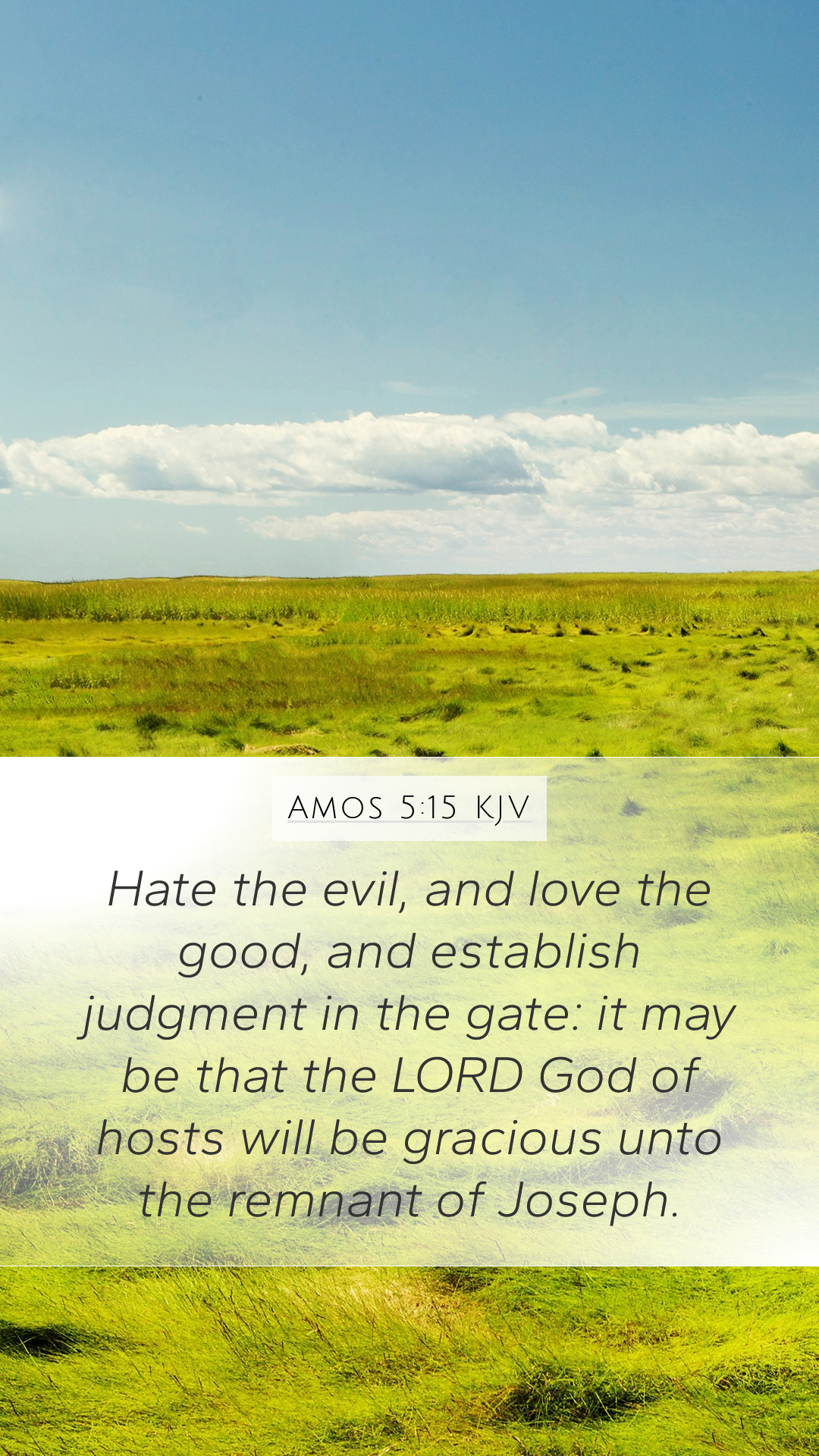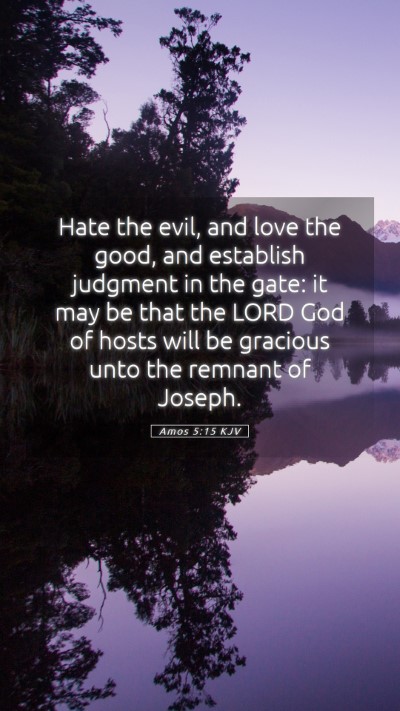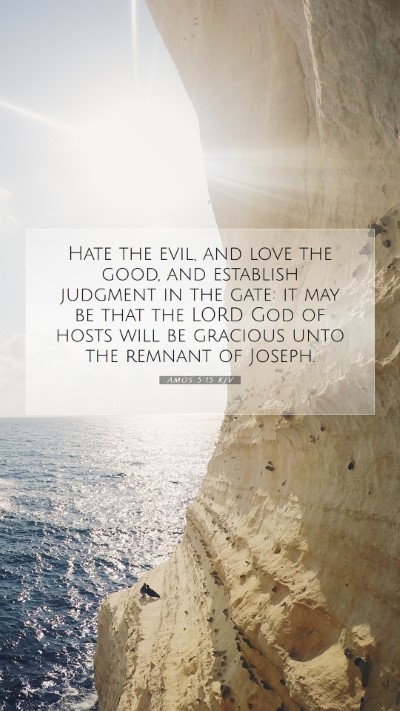Old Testament
Genesis Exodus Leviticus Numbers Deuteronomy Joshua Judges Ruth 1 Samuel 2 Samuel 1 Kings 2 Kings 1 Chronicles 2 Chronicles Ezra Nehemiah Esther Job Psalms Proverbs Ecclesiastes Song of Solomon Isaiah Jeremiah Lamentations Ezekiel Daniel Hosea Joel Amos Obadiah Jonah Micah Nahum Habakkuk Zephaniah Haggai Zechariah MalachiAmos 5:15 Meaning
What is the meaning of Amos 5:15?
Hate the evil, and love the good, and establish judgment in the gate: it may be that the LORD God of hosts will be gracious unto the remnant of Joseph.
Amos 5:15 Bible Verse Meaning
Understanding Amos 5:15
Amos 5:15 states, "Hate the evil, and love the good, and establish judgment in the gate: it may be that the Lord God of hosts will be gracious unto the remnant of Joseph." This verse encapsulates key themes of morality, judgment, and divine mercy, making it a significant point for biblical study.
Bible Verse Explanation
In this verse, the prophet Amos calls the people of Israel to a profound moral stance against evil, urging them to cultivate goodness and establish fair judgment within their community. The implications of this call are explored in several commentaries.
Commentary Insights
- Matthew Henry emphasizes the dual command of hating evil and loving good, pointing out that this requires a conscious choice in daily life. He reflects on the necessity of establishing justice and righteousness in society, which mirrors God's character.
- Albert Barnes interprets this exhortation as a call to personal and communal action. He highlights that the phrase "in the gate" refers to the place of judgment and decision-making, indicating where societal ethics must be rooted. Barnes argues that without these principles, divine mercy cannot be expected.
- Adam Clarke notes that this verse reflects a pastoral concern for the integrity of communal life. Clarke suggests that loving good and hating evil is foundational for a restorative relationship with God, who is characterized by grace and righteousness. He stresses the enduring hope that a remnant will receive God's grace if they align themselves with His commands.
Application in Daily Life
The relevance of Amos 5:15 extends beyond its historical context into contemporary life, inviting individuals and communities to evaluate their moral choices actively. The calls to love and hate are not merely emotional but demand actionable responses. This creates a space for meaningful discussions in Bible study groups and online Bible study.
Key Themes Explored
- Morality: The clear demarcation between good and evil emphasizes a moral obligation for believers.
- Judgment: Establishing judgment points to the need for societal structures that reflect God's justice.
- Divine Mercy: The hope for the remnant indicates that even amidst judgment, God's grace remains available.
Cross References
- Micah 6:8: A similar call to act justly, love mercy, and walk humbly with God.
- Isaiah 1:17: Encouragement to seek justice, correct oppression, and defend the marginalized.
- Romans 12:9: Instruction to let love be genuine; abhor what is evil; hold fast to what is good.
Conclusion
Amos 5:15 serves as a profound reminder of the imperative to engage with the moral complexities of life. Understanding this verse not only enriches Bible study insights but also facilitates deeper Bible verse interpretations. The call to love good, hate evil, and maintain justice stands as a timeless directive for believers seeking to live in alignment with divine principles.


